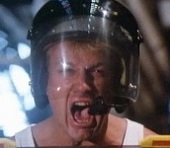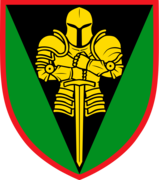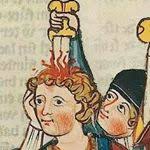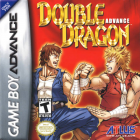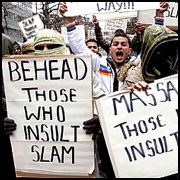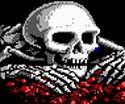|
Azza Bamboo posted:Does anyone know a solution to the whack-a-mole problem? Take out the healer first. One instance I had 2 players using a Healing Spirit to stay alive against 2 Assassins. Once they started popping up and down the assassins obviously noticed, so they focused on trying to kill the players. Normally I shift focus to the immediate threats but in this case it made sense to go for the kill.
|
|
|
|

|
| # ? Jun 4, 2024 19:49 |
|
Be aware, solving this "issue" means that you will probably kill your party, or at least some of them. If they're getting into fights where people are dropping multiple times per fight and then get healed, they will just get killed instead without healing. This is just how healing works in 5e, since they hosed with the short rests and ripped out healing surges from 4e as a HP/risk mechanic. While also making it impossible to heal through incoming damage in any meaningful way.
|
|
|
|
KittyEmpress posted:And you guys make it sound like rolling for stats gets you subpar characters 99% of the time, despite the fact that the statistics say that it's more likely than not to give you characters *above* point buy values in 5e (unlike PF where the math makes rolling average out to weaker characters) Same, plus do the whole thing of "if it adds up to less than 71 re-roll the dang stats".
|
|
|
|
I was super surprised when I first experienced that kind of wack a mole issue, because I was so used to the death's door rules from 2nd edition (essentially, if you went down, you had a buffer of down to -10 hp until you completely died, and even if you got healed back to consciousness you were unable to be combat effective until you got a rest in). When I first went down in a 5e game, got healed, and the other players were yelling at me to get back in the fight, I was like "I can do that?" I still don't know how I feel about it, because getting knocked out / reduced to 0 hp has to to be dazing, but magic is magic, so I mean that makes sense too. It just depends on if you want your game to feel more or less like a tabletop MMO (and hell, even some MMOs have short term penalties for getting revived in combat). Killing the party isn't very fun (imo). Wack a mole also isn't fun. Ritorix hit it on the head here - tuning the fights back a bit to enable the players to defeat the bads without getting into either of these situations is part of the ideal solution, as is educating the players about resource management (in both in and out of game terms) so that they know how many encounters to expect per rest (generally speaking), and so they realize that taking short rests to get HP back instead of using LR resources for healing between battles is a good move. Edit: vv 4d6 drop lowest is the default method for 5e iirc. Marathanes fucked around with this message at 14:58 on May 19, 2019 |
|
|
|
KittyEmpress posted:And you guys make it sound like rolling for stats gets you subpar characters 99% of the time, despite the fact that the statistics say that it's more likely than not to give you characters *above* point buy values in 5e (unlike PF where the math makes rolling average out to weaker characters) 4d6 drop lowest, yeah, that makes sense.
|
|
|
|
Point buy was lowered in 5e, probably to encourage the Real D&D Experience. The issue is, again, not the average outcome. We're not saying that most rolled characters are trash. We're saying that it's too likely that rolling will create characters who are mechanically superior/inferior compared to others in the same group, and that rolling can produce a stat array that prevents you from playing the characters you want to play as. Point buy at least mitigates this. This is the first I've seen "stat total of at least 71", where is that rule? Did I miss it?
|
|
|
|
Gharbad the Weak posted:Point buy was lowered in 5e, probably to encourage the Real D&D Experience. I think this is a logical extension of the modest ability score cap and the fact that you can +2 a single stat with on an ASI, both of which were good decisions, so I'm cool with that
|
|
|
|
Marathanes posted:Killing the party isn't very fun (imo). Wack a mole also isn't fun. Ritorix hit it on the head here - tuning the fights back a bit to enable the players to defeat the bads without getting into either of these situations is part of the ideal solution, as is educating the players about resource management (in both in and out of game terms) so that they know how many encounters to expect per rest (generally speaking), and so they realize that taking short rests to get HP back instead of using LR resources for healing between battles is a good move. There's no obvious way around the problem without causing another problem. Most 5E fights don't drag on too long (barring players who can't decide what to do), but the whack-a-mole combats can, because so many player actions are getting lost in the process of not dying. Leave the dying character stable but on the ground, and the enemies might ignore them, but that leaves a player sitting and waiting for the combat to end and leaves the group one set of actions down (elongating the combat). Give people who go to 0 hp a penalty when they get up again, and you've again slowed the combat while decreasing the incentive to get that PC up and fighting again. Short of borrowing a mechanic from something like Sentinels of the Multiverse, where characters who are down get to take special actions that inspire the rest of the party ("Fight to save our fallen comrade!"), I don't see an interesting solution. It's actually trivial to kill a PC, especially at lower levels of play. Run large number of enemies against the PCs, and use group initiative for them. The first goblin just scored a crit and dropped a PC to 0? The next two run up and hit the fallen PC, killing him instantly. At higher level, one monster with multiattack can spend two attacks to kill a PC. This is arguably effective, but not especially fun, though if the PCs have easy access to Raise Dead and the like it isn't going to mess the campaign too much (but aside from costing resources, it may not matter much either). Legendary enemies can drop a PC and then use legendary actions to keep hammering them, and this is in some respects the most "effective" approach because generally, such an instance means getting one attack (=2 failed death saves) forcing the PCs to spend healing to get the victim up before two legendary actions get spent. But if they drop a healing potion in the victim, the next hit will drop him to 0 hp again. Short of a boosted healing spell, one that outpaces the damage of the legendary foe, the PCs are going to have a very hard time keeping the fallen ally alive. The obvious downside is that multiple PC actions are getting spent on saving the fallen PC, meaning fewer are spent attacking the legendary enemy, meaning you're dragging out the combat and things can get quickly frustrating. Why not opt for doing something interesting instead? If there's ten goblins and one scores a lucky crit, the next two run up, grab the fallen PC and start dragging the body off! At higher level, use the endangered PC as leverage to force a cessation of hostilities and start a negotiation. Counterspell can block Healing Word, as can opening up the distance between the target and the caster; even more effective is obscuring the location where the fallen PC is, forcing the healer to use a touch-range spell instead. Killing the PC is sometimes worthwhile and interesting, but there's usually a better option. My brief thoughts on fumbles: they aren't much fun for PCs. If they're restricted to attack rolls, then at least enemies are going to fumble a fair amount of the time. But the incidence of fumbles on a nat 1 doesn't go down regardless of PC skill: the greatest swordsman in the land really fumbles as often as the Str 8 Dex 8 wizard trying to swing a Greatsword? That goblin with the -4 Persuasion check fumbles precisely as often as the bard with the +15? The only way critical failures make sense to me is if they happen when you roll a natural "1" AND you have failed to hit your target number by a sufficient amount. Even then, the most common result of a fumble should be either minor or nothing, with only the rarest cases being an exception; the DM has to play fair when monsters fumble, even the big bad at the end of the campaign; something has to take into account multiple attack rolls versus spells. Personally, I suspect that even if I used critical failures, I'd restrict it to circumstances where someone lacks proficiency. That wizard with the Greatsword could for sure accidentally cut off his own limb because he can't control the weapon and has no idea how to use it. But if you want King Arthur wielding Excalibur to cut off his own leg on a nat "1", you better be playing a very specific style of game (either comic, or low-fantasy horror). All that said, letting random chance take the wheel can potentially lead to funny stories, like the PC in a past campaign (where a nat "1" led to a 20% chance of dropping a weapon) whose rolling was notoriously bad and who dropped a weapon fairly frequently. The group found an intelligent sword and gave it to him to wield. The first fight they entered, the sword starts giving him tips on attacking; the PC promptly fumbles and drops the weapon. Upon being picked up, the sword started giving much more basic suggestions on form, and on the very next swing, the PC again fumbled and dropped it. The weapon refused to talk to him after that and the party was forced to sell it. That player later had his character learn to juggle to make it easier for him to recover dropped weapons. The PC ended up being the best candidate late in the campaign when they decided they had to strip the portfolio from the God of Death and give it to someone else, so now Death clerics in that campaign world traditionally learn juggling. (In my brief 4E campaign, I designed encounter powers based on individual deities and one of his was "Juggling Strike.") In short, if your group and your execution of fumbles mean more fun, go for it. If it's more frustrating than fun, change the rules or drop them.
|
|
|
Gharbad the Weak posted:Point buy was lowered in 5e, probably to encourage the Real D&D Experience. The idiotic 5e counterpart to this is that some characters aren't playable until you roll well enough. If you want to play an elf with a great sword you're better off rolling to go for a 16 then being saddled with a 15 str. I personally despise rolling for stats for the reasons outlined earlier in the thread, but 5e's point buy (like much of its rules) is a garbage fire.
|
|
|
|
|
If you keep rolling 1's and your character falls on their rear end a lot, just make a fighter who's really good at MMA, on the ground-style combat
|
|
|
|
EDIT: I'm dumb, disregard
Froghammer fucked around with this message at 16:39 on May 19, 2019 |
|
|
|
Gharbad the Weak posted:Point buy was lowered in 5e, probably to encourage the Real D&D Experience. I've used it because it's what is used in Critical Role/Mercer method. Plus it seems like a good way of balancing things out. I find that without rolling it's quite tricky to make a paladin as they kind of have 3 stats.
|
|
|
|
Roll 22d6, create ability scores by assigning 3 of the dice to each score.
|
|
|
|
Tibalt posted:Roll 22d6, create ability scores by assigning 3 of the dice to each score. This was first suggested back in 1e and it actually works pretty well!
|
|
|
|
Back when we actually rolled (2e timeframe) my group always did 4d6 drop lowest (along with having the option to reroll the entire stat set once) which helped with anyone being too scrubby. Still end up with wild outliers however. I'm a big fan of everyone being on even footing. Might not make much sense from a realism perspective but sure beats someone feeling bad cause they couldn't manage to roll over a 10. Have the GM roll 22d6 and everyone has to arrange the same set of numbers however they want 
|
|
|
|
I feel like mostly what people want when they're rolling is just to have higher ability scores. I've noticed, for example, that when playing with Sanity/Honor and you get an additional three point-buy points to play with, people are pretty content. Perhaps the answer is just to increase the point-buy values so they're above the rolling average, rather than below it.
|
|
|
|
Arivia posted:This was first suggested back in 1e and it actually works pretty well! Unless you roll below average.
|
|
|
|
Conspiratiorist posted:Unless you roll below average. For games built around rolling stats (D&D until AD&D 2e), it's a nice idea because it lets you set yourself up for a given class while still having the randomized ideal of rolled stats. I have no idea how it would work in 5e, which seems to be more character build based.
|
|
|
|
Surely not an original thought but: Itís kind of funny that the probability of rolling dice is a very solved problem and we have all these different mechanisms to balance stat rolling. It seems like it shouldnít be that hard to figure out a way of doing rolled stats that has whatever confidence interval you want around the outcome that point buy would give you (or having an x% chance of being above 71 or whatever cutoff you like). I guess it could be sort of goofy (roll a huge number of dice, drop another huge number) I donít have enough experience playing to tell you what it should be, and I guess that would come down to preferences of DMs and players but now Iím kind of curious about the distribution of outcomes of the ones folks have mentioned in the thread.
|
|
|
|
Could just get rid of stats entirely and have bonuses based on proficiency and skill levels
|
|
|
|
Arivia posted:For games built around rolling stats (D&D until AD&D 2e), it's a nice idea because it lets you set yourself up for a given class while still having the randomized ideal of rolled stats. I have no idea how it would work in 5e, which seems to be more character build based. The overall optimal setup in 5e is two primary attributes with a combined mod of at least +6, and depending on class a tertiary attribute with a +2 mod. For the rest the higher is better, but they're nowhere near as relevant. This spread is something that point buy lets you do (assuming the right racials), and that 4d6 drop low only has a ~35% chance of netting you. I won't calculate the chances for 22d6, but on my first test roll the highest 3 possible values were 17 13 12 before any racial modifiers. dismas posted:Surely not an original thought but: Itís kind of funny that the probability of rolling dice is a very solved problem and we have all these different mechanisms to balance stat rolling. It seems like it shouldnít be that hard to figure out a way of doing rolled stats that has whatever confidence interval you want around the outcome that point buy would give you (or having an x% chance of being above 71 or whatever cutoff you like). I guess it could be sort of goofy (roll a huge number of dice, drop another huge number) The stat rolling paradox is that the more you normalize and fail-check the possible results, the more you undermine the arguments for rolling in the first place. Conspiratiorist fucked around with this message at 17:47 on May 19, 2019 |
|
|
|
If were to change something about stats it would be to not make odd numbered ones useless.
|
|
|
|
MonsterEnvy posted:If were to change something about stats it would be to not make odd numbered ones useless. Yeah itíd make more sense to do it like Monster of the Week or other PbtA games where your stats are just the modifier. 3str, 2 con, etc.
|
|
|
|
Gharbad the Weak posted:This is the first I've seen "stat total of at least 71", where is that rule? Did I miss it? It's one of those billion fixes people have for rolling stays. "Reroll array if <71" "roll 2d6+6" "3d6 with 6 points" are all just different versions of 4d6 drop lowest. They move the PCs towards the desired stat range for the DM in question. Which is why people are saying things like "it's not gambling if you can't meaningfully lose." A big part of stat rolling games is inserting these fixes. And if you're the type to break down game math for fun it becomes immediately apparent that stat rolling is either completely unfun or its got such a heavy thumb on the scale that you should just run stat array and get to the actual game.
|
|
|
|
Just buy stat points
|
|
|
|
As a DM whose 'best campaigns ever" were all in 4E, I just Short Rest my 5E PCs after every encounter and pace the encounters accordingly. I was originally planning to "adjust game balance as necessary," but after several years, I haven't adjusted poo poo. It's fine.
|
|
|
|
Glagha posted:Not calling you out, I just feel the need to correct this whenever I see it because it's a horrible myth that people keep repeating and it needs to be killed. 1st edition AD&D rules, straight from Gary fuckin Gygax himself in the chapter about generating ability scores straight up says "well you could roll 3d6 and assign the numbers to your stats, but you're likely to just have a terrible character when you do that so you should pick one of these other methods instead" including the 4d6, drop the lowest method. I'm glad that you said this, but to be fair the "traditional" 3d6 from top to bottom was the default method in the 2nd edition PHB. I realise that it's probably another symptom of propagating a misconception, but it's understandable why people think that way given that it was in the most prominent book in a very prominent iteration of a game that's still fairly well regarded decades later. Schadenboner posted:Back when I actually played often (so, like, 2E era) We always did 4d6 drop lowest, arrange as desired, and if you wanted to play something like a Paladin you could use the generation table from the Paladin Handbook instead. That way there's still a random factor but it's less swingy and harsh? My first character for a big campaign was a paladin, and it was a very egregious example of gating a character behind randomness that wasn't necessarily that powerful. We realised that having 17 Cha was not in any way integral to the character, so I ended up running a paladin with something much lower. It might have been a Prime Requisite, but Cha was not a core stat for any class that I can recall back in 2nd edition. By core, I mean an attribute that dictated most or all of a character's ability to function. For example, Int for wizards, Wis for clerics, Cha for bards and sorcerers in 3rd edition etc
|
|
|
|
JustJeff88 posted:I'm glad that you said this, but to be fair the "traditional" 3d6 from top to bottom was the default method in the 2nd edition PHB. I realise that it's probably another symptom of propagating a misconception, but it's understandable why people think that way given that it was in the most prominent book in a very prominent iteration of a game that's still fairly well regarded decades later. Fair enough, I'm strangely enough more familiar with 1e than 2 so I didn't know that.
|
|
|
|
Tibalt posted:Are you talking 3d6, or 4d6 drop lowest? Because 3d6 would roll below a 12 roughly 60% of the time, so without actually doing the math and taking into account very high or low rolls, it feels like you would get worse result than point buy. And that's not taking into account stuff like character optimization. Always 4d6 drop the lowest. This is what has been recommended in every edition of D&D I've ever played. It's what is in 3.0, 3.5, 4e, PF, and 5e. 3d6 is going to get you below average rolls. And yeah, rolled stats are specifically nice in 5e for making race optimization less needed. If I roll two 16s, or a single 18 I'm not gonna feel the need to make my paladin have to be an aasimar for str + cha, I can go elf and not feel bad. Overall: point buy is superior for keeping everyone on the level. But rolling has benefits that people enjoy, and can help make games more memorable than 'I started with the default stats every single paladin starts with'. KittyEmpress fucked around with this message at 19:12 on May 19, 2019 |
|
|
|
Maybe it's because of all the Jojo but I just had the strangest urge to want to play a generational D&D game. Have a big adventure, and when it's done skip ahead like 100 years and see how things are going. Human players play their characters descendents, go off on an adventure with their parent's/grandparent's old dwarf and elf friends, that sort of thing.
|
|
|
|
I was banking on rolled stats making paladin work for my halfling but came up short. No pun intended. That said, we're a deeply suboptimal group so I'm still one of the more effective characters.
|
|
|
|
Glagha posted:Maybe it's because of all the Jojo but I just had the strangest urge to want to play a generational D&D game. Have a big adventure, and when it's done skip ahead like 100 years and see how things are going. Human players play their characters descendents, go off on an adventure with their parent's/grandparent's old dwarf and elf friends, that sort of thing. Have a re-occuring antagonist that will be alive for all those generations, harrying the heroes Castlevania style. Or Jojo style, I guess. I forget Dio is a vampire sometimes
|
|
|
|
Firstborn posted:Have a re-occuring antagonist that will be alive for all those generations, harrying the heroes Castlevania style. I'm going to be DMing Curse of Strahd in a few weeks. A friend of mine played the original Ravenloft module with his friends when he was a kid and now IRL 20 years later, his character is going to be his original character's grandson.
|
|
|
|
Nehru the Damaja posted:I was banking on rolled stats making paladin work for my halfling but came up short. No pun intended. That said, we're a deeply suboptimal group so I'm still one of the more effective characters. It would be pretty cool to nerf one of your characters items down to a +0 and then have it grow as an heirloom item with your descendant. Or to pick a feat at level 1 to represent the family becoming known as rapier duelists or shieldbearers or something.
|
|
|
|
Conspiratiorist posted:I won't calculate the chances for 22d6, but on my first test roll the highest 3 possible values were 17 13 12 before any racial modifiers. You only had two 6s out of 22 dice rolls? That is pretty bad.
|
|
|
|
Glagha posted:Maybe it's because of all the Jojo but I just had the strangest urge to want to play a generational D&D game. Have a big adventure, and when it's done skip ahead like 100 years and see how things are going. Human players play their characters descendents, go off on an adventure with their parent's/grandparent's old dwarf and elf friends, that sort of thing. This is something I really think would be cool.
|
|
|
|
Ceros_X posted:You only had two 6s out of 22 dice rolls? That is pretty bad. for a moment I thought I was reading a shadowrun thread
|
|
|
|
TheGreatEvilKing posted:The idiotic 5e counterpart to this is that some characters aren't playable until you roll well enough. If you want to play an elf with a great sword you're better off rolling to go for a 16 then being saddled with a 15 str. that scenario you outlined is a problem with racial ability score mods, not 5E point buy; if point buy let you go to 16 instead of 15, you'd be in exactly the same predicament because races with +2 stat mods would be starting at 18 and the bar for what's "playable" would shift from 16 to 18 I don't know why you think it's different than any other edition of D&D in that regard Baku fucked around with this message at 23:15 on May 19, 2019 |
|
|
|
I sorta like fumbles and real consequences from natural 1's. Magic users are already "punished" by having lost a spell slot, where as melee doesnít exactly have that built in. I like weapon entanglements, small injuries, etc. One thing I really like is critical failures effecting other party members negatively. I also think it can be interesting to role damage on failure and then apply some percentage of that to the player or maybe a party member in the line of fire. I wouldnít do full damage or anything. I donít exactly agree with the philosophy that the game is some sort of numeric simulator. What I think is that the background rule base and dice rolling randomize the story telling and therefore can contribute to a sense of emergent play that is not simply the "plan" of the player or DM. You canít really be heroic without overcoming epic failures. I havenít played or run a game in years now, but I always included the possibility of real consequences for crit failure, without it being game or character breaking. And of course itís really one of the best opportunities for ridiculous humor.
|
|
|
|

|
| # ? Jun 4, 2024 19:49 |
|
Marathanes posted:Whatever happened to the UA Mystic anyways? I've read a few wild rumors about it getting entirely scrapped, but if that was the case I figure we would have gotten a new UA by now. I always loved Psionics in prior editions (especially 2nd), and I hope to see it completed at some point. In an attempt to get away from critical fail chat, I wanted to see if I could bring this back up, as it seems to have gotten lost in the kerfuffle. Reason being I was just toying with a teleport spam sort of build and the only two options that seem viable are a UA Mystic (Nomad, perhaps, but they don;t get a free teleport until late), or a Shadow Monk. I feel like a Shadow Monk 6 / Rogue would make a really interesting character that could reposition anywhere in line of sight in dim light or darkness (plenty of options in most dungeons / towns / forests, etc.. provided it's not high noon), then move and sneak attack, with a backup attack if the first attack with advantage didn't hit. Take Swashbuckler at rogue 3 to assure you can sneak attack the lone mage standing at the back of the party even if you blow your first advantage attack from coming out of shadow step. The Mystic build would be more of a kiter/caster/support thing, but would be drat hard to pin down, and would also have access to the hilarious baleful transposition / there and back again combo.
|
|
|






